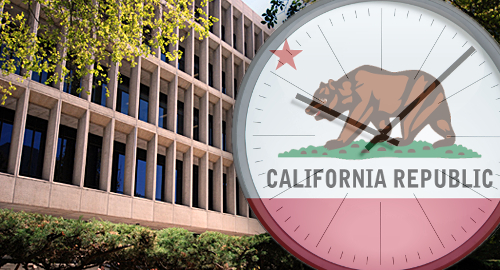 California’s legislator-sponsored sports betting bill took another small step forward on Tuesday but the state’s tribal gaming operators haven’t given up on getting their own betting proposal on the state’s election ballot.
California’s legislator-sponsored sports betting bill took another small step forward on Tuesday but the state’s tribal gaming operators haven’t given up on getting their own betting proposal on the state’s election ballot.
On Tuesday, the California state Senate Appropriations Committee added Senate Constitutional Amendment 6 (SCA-6) to its Suspense File, a last-minute grab-bag for bills that have significant fiscal impact yet lack a final fiscal analysis. The committee plans to vote on June 18 on whether to send SCA-6 to the Senate for a floor vote.
Unlike last week’s detailed hearing at the Governmental Organization Committee, the Appropriations hearing on SCA-6 lasted only 15 minutes. Some of the tribal gaming operators that so vehemently opposed SCA-6 last week phoned into the hearing to restate their opposition.
The tribes oppose the legislative effort because it includes a provision to legalize the controversial ‘player-banked’ games at the state’s cardrooms. The tribes contend that these games infringe on what they claim is their monopoly over house-banked card games such as blackjack and baccarat.
SCA-6 will require two-thirds support in both legislative chambers and the tribes can be counted on to lean on their legislative allies to ensure those hurdles aren’t cleared. Even if SCA-6 is approved, the tribes have vowed to wage a serious campaign to convince voters to nix the state-backed betting initiative come November.
The tribes have proposed their own constitutional amendment that would allow wagering at tribal casinos and state racetracks but, unlike the legislators’ plan, doesn’t include a digital betting option. The tribes were in the process of acquiring the nearly 1m signatures needed to get their proposal on November’s ballot but the process was halted in March due to COVID-19.
On Tuesday, a group called the Coalition to Authorize Regulated Sports Wagering, which represents a couple dozen tribes in the state, filed a lawsuit in Sacramento County Superior Court seeking more time with which to gather the necessary signatures to get their proposal on the ballot.
State law requires any ballot initiative signature drive to be completed within 180 days, and the Coalition wants either a 90-day extension of their stipulated window or for the state not to count the time that elapsed after the state imposed its COVID-19 lockdown on March 19.
The lawsuit claims the tribes spent around $7m gathering signatures prior to that halt and starting from scratch would impose unnecessary financial hardship on the tribes.